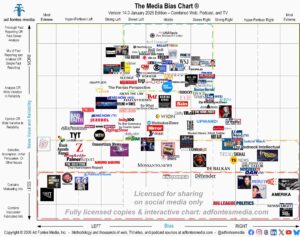
Ad Fontes Media Can Teach Americans to Trust the News and Each Other Again
Author:
Erin Fox-Ramirez
Date:
08/16/2023
Previously released research by the Pew Research Center examined the ability of Americans to discern the differences between factual and opinion statements in the news. Unsurprising to anyone paying attention to the state of news media in recent years, the results were not great, with Americans only distinguishing fact from opinion three out of five times. However, there is reason to be hopeful. Even more than that, there is data to support that the work Ad Fontes is doing can help you trust the news again. Let me explain.
The Ad Fontes methodology encompasses reliability and bias. In our rating shifts we have a balanced pod of one left-leaning, one right-leaning, and one center analyst to rate every article, TV show, and podcast. This system of heterogeneous ratings allows each analyst to mitigate for blindspots and help their fellow analysts to see why preconceptions might skew their ratings. A key finding from the Trust In News Project found the offline reputation of news outlets affected the online interpretation of their content. This can be summed up in one word.
Trust. A short word that means so much, and even more when we place it in our news media.
Trust means different things to different people as well. A 2022 Gallup Poll found that only 21% of Americans had a “Great deal/Quite a lot” of confidence in newspapers; 11% had a “Great deal/Quite a lot” of confidence in television news. The Ad Fontes methods will not make you trust news again by themselves, but they will ask you to flex your critical thinking muscles, a lot. Veracity, for example, is one concept that we teach as a subfactor on the reliability axis. Essentially, this involves making an educated guess on the likelihood that something is true based on available information (reporting on other news sites, fact checks, background knowledge, etc.).
Another powerful skill we teach is metacognition, or an awareness of one’s own thought processes: thinking about thinking. We do this through argumentation, or more simply put, arguing for the other side, similar to what is practiced in secondary and post-secondary debate classes. We teach the analysts to be comfortable with being uncomfortable. The best way to understand the other side of an argument is to argue against your own beliefs.
Americans have shown a desire for civil discourse and debate across the political aisle. Many organizations have been created to meet those needs, such as Braver Angels, Starts With Us, and the Listen First Project. How can Ad Fontes help you with developing these same skills? Our methodology. We offer free webinars, media literacy courses for educators, individual subscriptions, and data services for brands and advertisers.


